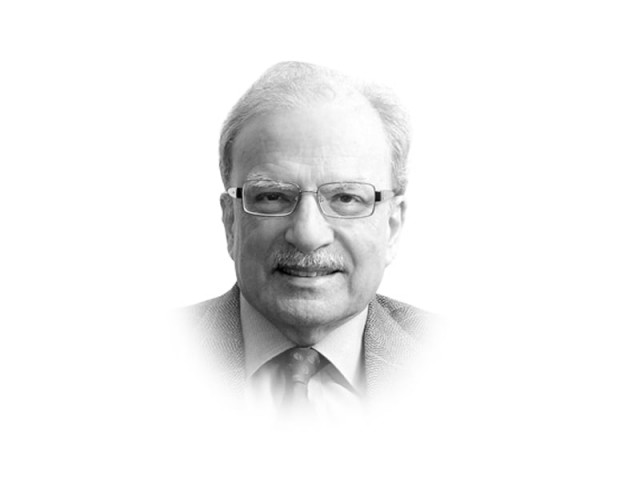Dispersal and coherence: a challenge
It will be worth exploring how Pakistan developed a taste for centralised authority in the first place.

To achieve durability for the state, those in power will have to learn to share their authority — to disperse it through the use of various institutions and instruments to the country’s distant corners. This would mean accepting federalism as embedded in the Constitution and by developing political organisations that truly represent the country’s many people. At the same time, this dispersal of authority should be done to retain one state working for one nation. In that context, it will be worth exploring how Pakistan developed a taste for centralised authority in the first place.
Pakistan’s founding fathers, by creating political space for the Muslim community of British India, solved one problem but left a number of others unresolved. The problem that was solved was the perception that the Muslims would not a get a fair deal in a united India. The solution was to create a Muslim homeland and provide those who came to live within the boundaries of the new state, the opportunity to control their own destiny. But what was left unsaid was how this space, once created, would be used to help the citizenry. It was also not clear as to who would be in charge of policymaking in this space. This was to become the dilemma of the Pakistani state. It has preoccupied several generations of leaders in the country’s history.
Two approaches were tried alternatively. The first one was to let policymaking be the responsibility of the people’s representatives. The second one was to allow the self-appointed to guide the affairs of the state. The first meant the adoption of democratic rule; the second was the rule by the bureaucracy, first the civilian, then the military. The first had great merit as has come to be recognised by most communities across the globe. The second was found to be attractive by large segments of the population during periods of great economic stress. With hindsight it can be said that the military left the country in a worse situation from the one it inherited at the time it usurped power. Initially, it did succeed in making the ‘trains run on time’. It brought a degree of coherence during moments of extreme chaos. But each time, it failed in the larger task: to create one nation with one purpose out of diverse people. The military tried four times and failed each time.
The first intervention in 1958 was justified by those who assumed power by pointing to the failure of the civilian leadership that had governed for 11 years without developing a tenable and durable political order. Society then was even more divided than it is today. There were serious differences between the two main regions — East and West Pakistan. There was conflict between those who had arrived from India as refugees and those who were indigenous to the areas that had become parts of Pakistan. A large number of refugees settled in some of the larger cities and gave the urban population a say in politics they never had during the British period. All these differences needed minding, which meant serious delays in defining the political order meant to provide governance in the country. The military leadership concluded that the civilian leadership was not up to the task and intervened.
Up until the military intervention, political leadership was mostly from among those groups that had left their homes in India. The new leaders had little mass support. Had they created a political system as India did after only two-and-a-half years of gaining independence, they would have had to ask for people’s support. That was not there. In that situation of uncertainty, the leadership tried subterfuge to retain power. The result was the gradual surrender of power to those who had learnt governance from being members of the various ‘imperial services’ of British India. The men who rose to the top in various Indian civil services had followed a model of decision-making that relied on the centralisation of authority. The British had used the model successfully for almost a 100 years. A viceroy appointed by London sat on top of an administrative structure that put faith in the efficiency and goodwill of a few. The vernacular term for this approach to governance was ‘mai-baap’ (mother-father): the citizens were the state’s children to be cared for as such.
In its formative years, Pakistan developed a hybrid model of political management and governance. For a little over four years, politicians were clearly in charge. However, after the assassination of Liaquat Ali Khan, the country’s first prime minister, politicians gradually lost power to the bureaucracy. After Liaquat was killed in October 1951, a new brand of managers emerged. These were bureaucrats-turned-politicians. Their ascent was to leave a lasting impression on the Pakistani political landscape for decades. How that happened will be the subject of the article next week.
Published in The Express Tribune, October 15th, 2012.















COMMENTS
Comments are moderated and generally will be posted if they are on-topic and not abusive.
For more information, please see our Comments FAQ